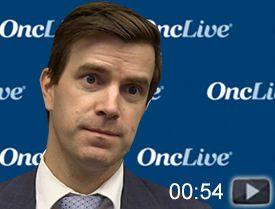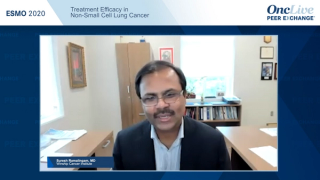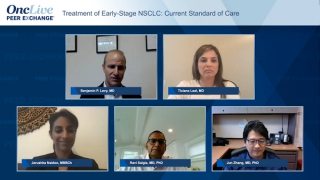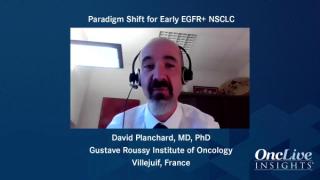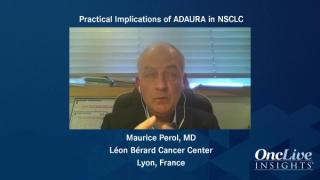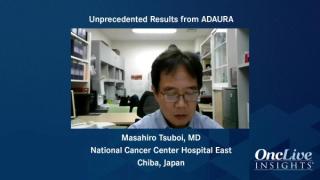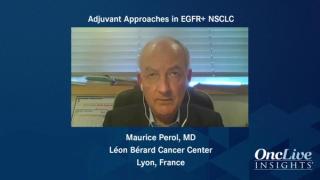
Lung Cancer
Latest News
Latest Videos

CME Content
More News

Patrick M. Forde, MBBCh, discusses the advances in early-stage non–small cell lung cancer, emphasizing neoadjuvant and adjuvant immunotherapy trials in stage I, II, and III disease.
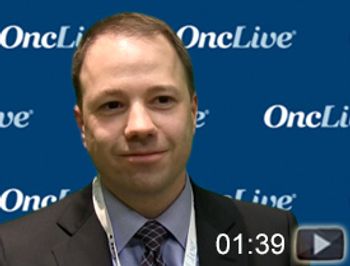
Ryan D. Gentzler, MD, assistant professor, Division of Hematology/Oncology, University of Virginia Health System, discusses combination therapies in non–small cell lung cancer (NSCLC).

Paul A. Bunn Jr, MD, distinguished professor, Division of Medical Oncology, James Dudley Chair in Lung Cancer Research, University of Colorado Denver, 2014 Giant of Cancer Care in Lung Cancer, discusses the treatment of patients with early-stage non–small cell lung cancer.
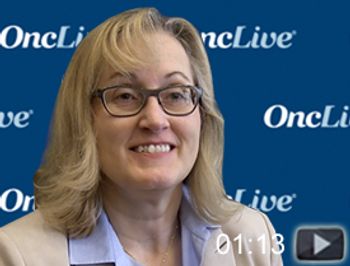
Julie R. Brahmer, MD, associate professor of oncology, co-director of the Upper Aerodigestive Department, Bloomberg Kimmel Institute for Cancer Immunotherapy, Johns Hopkins Medicine, discusses immunotherapy for patients with stage IV non–small cell lung cancer.

Josephine L. Feliciano, MD, discusses established and emerging therapeutic developments for patients with non–small cell lung cancer with less common driver mutations.

The FDA has granted a priority review designation to single-agent pembrolizumab for the frontline treatment of patients with locally advanced or metastatic nonsquamous or squamous non–small cell lung cancer with PD-L1 expression ≥1% and no EGFR or ALK genomic tumor aberrations.
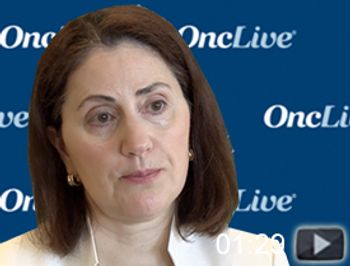
Vassiliki Papadimitrakopoulou, MD, professor, Department of Thoracic/Head and Neck Medical Oncology, The University of Texas MD Anderson Cancer Center, discusses impactful targeted therapies in lung cancer.
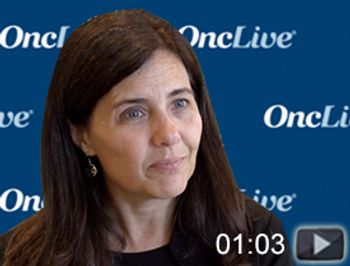
Heather Wakelee, MD, associate professor of medicine (oncology), Stanford University Medical Center, discusses dacomitinib in patients with EGFR-positive non–small cell lung cancer.

Josephine L. Feliciano, MD, discusses the role of immunotherapy and the potential of targeted agents in small cell lung cancer.
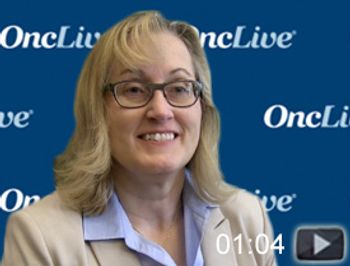
Julie R. Brahmer, MD, associate professor of oncology, co-director of the Upper Aerodigestive Department, Bloomberg Kimmel Institute for Cancer Immunotherapy, Johns Hopkins Medicine, discusses the clinical application of the IMpower150 trial in patients with non–small cell lung cancer (NSCLC).
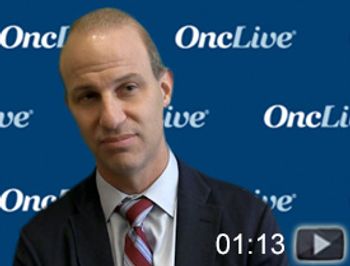
Benjamin P. Levy, MD, assistant professor of oncology, clinical director of medical oncology, Johns Hopkins Sidney Kimmel Cancer Center, Johns Hopkins Medicine, discusses investigational biomarkers of response to immunotherapy in non–small cell lung cancer (NSCLC).

The FDA has extended the review period for a supplemental biologics license application for atezolizumab for use in combination with bevacizumab, carboplatin, and paclitaxel for the first-line treatment of patients with metastatic nonsquamous non–small cell lung cancer.

The FDA has granted LOXO-292 a breakthrough therapy designation for the treatment of patients with RET fusion–positive non–small cell lung cancer or RET-mutant medullary thyroid cancer.
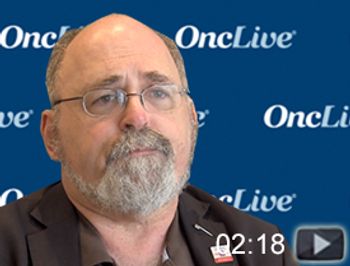
Corey J. Langer, MD, director, Thoracic Oncology, Abramson Cancer Center, professor of medicine, Perelman School of Medicine, University of Pennsylvania, discusses the impact of the PACIFIC trial results on the treatment landscape of stage III non–small cell lung cancer.

In the setting of advanced non–small cell lung cancer, the choice of up-front immunotherapy or chemotherapy, or combinations of both, is aided by findings from several trials.

Jarushka Naidoo, MBBCh, assistant professor of oncology, Johns Hopkins University, discusses the treatment of patients with non–small cell lung cancer who develop immune-related adverse events (irAEs).

Hak Choy, MD, Nancy B. & Jake L. Hamon Distinguished Chair in Therapeutic Oncology Research, Department of Radiation Oncology, UT Southwestern Medical Center, discuses therapy for patients with oligometastatic lung cancer.

Paul A. Bunn Jr, MD, discusses the potential for new agents to treat small cell lung cancer, the challenges involved in treating this population, and the ongoing search for biomarkers to guide treatment decisions.

In recent years, tyrosine kinase inhibitors that specifically target RET have entered the pipeline. Although none have yet received FDA approval, the promise of these agents has spurred interest in diagnostic assays.

Julie R. Brahmer, MD, provides an overview of the landscape of metastatic non–small cell lung cancer, specifically addressing the combination immunotherapy studies with the greatest impact.

Patrick M. Forde, MBBCh, assistant professor of oncology, Johns Hopkins Hospital, discusses updates to the tumor, node, metastasis (TNM) staging system in lung cancer.
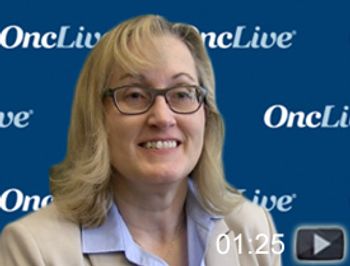
Julie R. Brahmer, MD, associate professor of oncology, co-director of the Upper Aerodigestive Department, Bloomberg Kimmel Institute for Cancer Immunotherapy, Johns Hopkins Medicine, discusses the use of chemoimmunotherapy in patients with non–small cell lung cancer (NSCLC).

D. Ross Camidge, MD, PhD, discusses the use of immunotherapy in patients with non–small cell lung cancer.

Patients with mutations in NTRK, RET, MET, HER2, and KRAS G12C have limited therapeutic options, but potentially promising agents are on the horizon.

Dustin M. Walters, MD, provides perspective on the treatment landscape of stage III non–small cell lung cancer.




